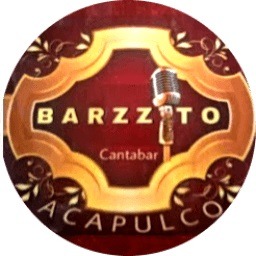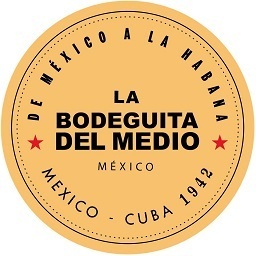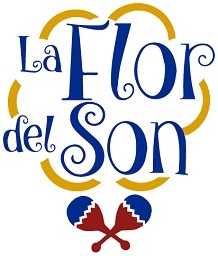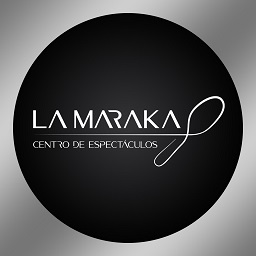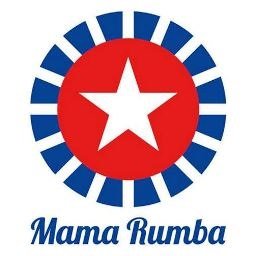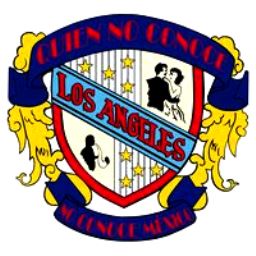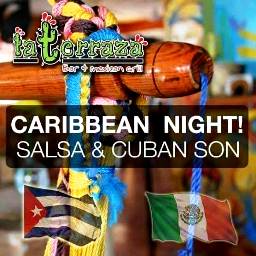Search Results for: Son
Virginia Directory 2023
California Directory 2023
Guantanamo music director, arranger and composer Julio Avila
Julio Avila Cuban Band
The Latin music scene in Canada is growing every day thanks to the large number of artists who have decided to move to this beautiful country to try their luck with their talent. Such is the case of Cuban musical director, arranger, composer and singer Julio Avila and the members of his great band Julio Avila Cuban Band.
Given that we thought his career was very interesting, we decided to contact him to learn more about his work and he was kind enough to accept the invitation. Here are the issues we touched on during this fascinating interview.
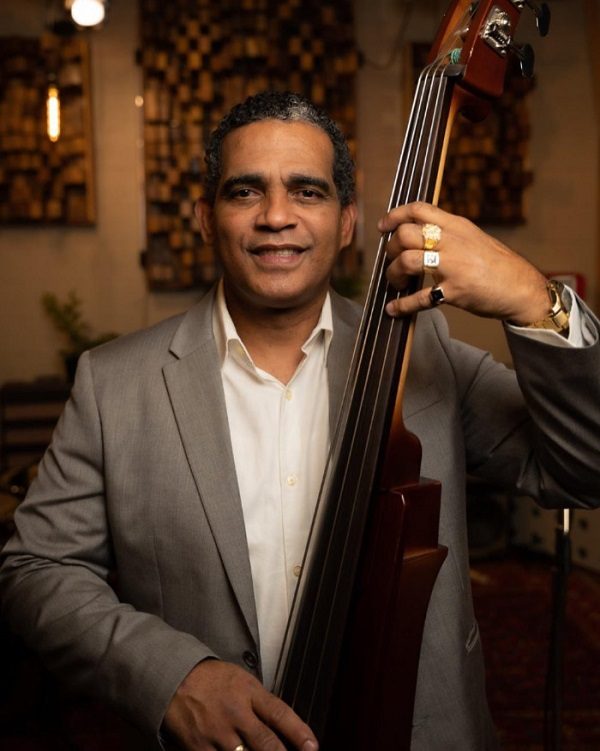
Life for Julio in Guantanamo, Cuba
Contrary to the answer we might expect, Julio told us that making music in Cuba at that time was not difficult, as life was not so expensive and the economic crisis was not as severe as it is now.
In his particular case, things were easier because his mother worked in a radio station and his father was a professional musician and the musical director of the popular music group Por Nuestros Campos for many years until he sadly passed away. It was undeniable that art ran through his veins.
His sister Isabelita was also involved in popular music for many years and was even awarded on several occasions at the local Eduardo Saborit Festival. Today she is retired, but she was very successful locally at the time.
Because all the brothers had a penchant for music, they decided to create a group called Los Hermanos Avila until they all went their separate ways and dedicated themselves to their own professions.
Julio considers that today they would not have been able to devote to this branch of the arts due to the political and economic situation that the island is enduring, and he is thankful that it was not so.
According to his words, the money was enough to buy the instruments in those times, but things become so complicated that developing an artistic career in the Caribbean country is much more difficult.

Changüí
Although he says he has played changüí because of his Guantanamo origins, he was never in a group that based its music on this traditional Cuban dance, as the artist has always liked popular music and salsa.
”Changüí is a genre born in the province of Guantánamo that did not get much popularity, but today, it is impressive the large number of young people who play this dance, since they got a taste for it. In spite of all the years after it was created, there are guys who do not let it die, which makes me very happy” said Julio on this issue.
When we wanted to know why he thinks that these young musicians have opted for this genre and not for other more modern ones such as trap or reggaeton, he replied that the latter two sound a lot in Cuba, but there have been music teachers and schools that have not let changüí die. They continue to teach it to their students and promote it whenever they can.
In addition, there are always groups interested in preserving it in time and uniting it with son and other traditional Cuban genres. They even add flutes and violins, which were not present in the original changüí, in order to give it a unique and modern touch.
Academic background
Julio started playing the guitar being a child of five years old, as he had always seen his parents and older brothers involved in everything that had to do with music. Therefore, it all started in a very natural way and basically on instinct. It was later that both he and his siblings decided to educate themselves in order to become more complete professionals.
In Guantánamo itself, he studied at a music school to become a bassist and began working fully on popular music, which had always been to his liking.
With all that gained knowledge, he decided to move to the city of Havana, to get involved in other projects there and to compose his own material.
Since he was 16, he earned a living as a bassist in a popular music group, which activity he alternated with his secondary education. It can be said that this is the formal beginning of Julio’s musical career.
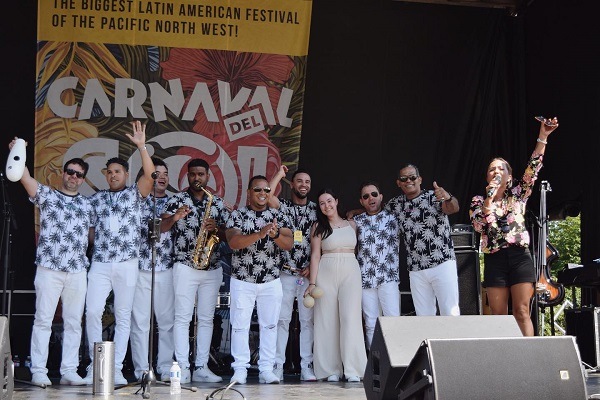
Sonora Universal and Brisas Del Palmar
Before forming his own orchestra, Julio worked with La Sonora Universal and Brisas Del Palmar, which were his first opportunities to shine in the music world.
When the artist was working in a quintet, a trio from the city of Santiago (Brisas Del Palmar) went to a music festival in Guantanamo and thet had the opportunity to meet in a club in 1999. ‘’The musical director of the trio saw us playing and liked the way I played the bass. He told me about the possibility of playing with them, but it did not happen until 2001 when I went to Havana and we met by chance,” Julio said.
After having some time worked with the trio, this musical director met the talented tresista Cesar Echevarría, director of Sonora Universal, who needed a bassist because his stayed in Germany. It was then that he told him about Julio and asked him to see him play, which led them to meet and start working together.
Within a few weeks, Julio was already traveling to Europe with Cesar to tour Germany, Denmark, Holland, Austria and Czechoslovakia. This trip is the one that began to open new doors for him and make him develop as an artist.
Definitive departure from Cuba
When Julio had some time with La Sonora Universal, the director of Brisas Del Mar again asked him to join the group for a tour of Canada in 2005. When he was included, the group went from being a trio to a quartet.
Receptivity from Canadian businessmen was so good that he decided to stay with Brisas Del Palmar permanently until he decided to move from Cuba in 2014 due to the situation which the island was going through.
The latter coincided with the beginning of his love relationship with the Serbian citizen Natasha Marjanovic, who today is his wife, manager of his orchestra and a great life support. It was she who convinced him to stay in Vancouver, a decision he says it was the right one.
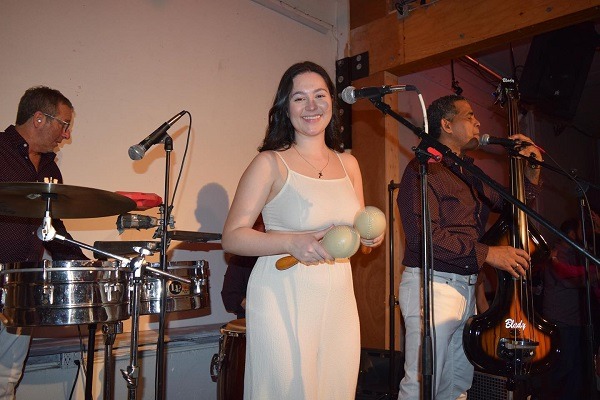
Beginnings of Julio Avila Cuban Band
It all started when Julio needed a pianist for Brisas Del Mar and hired Ernesto Benitez, who, once in Canada, told him that he was not going back to Cuba. That is when he saw the opportunity to start creating his own orchestra from himself and this musician.
The next to be included was percussionist Norman García, with whom Julio and Ernesto formed a trio and began performing at festivals until Isidora Bosanovic, singer and his wife Natasha’s niece, arrived. Her case is very particular because she did not speak Spanish, but she learned it so she could sing in the orchestra. Today, she speaks and sings in Spanish very well.
Finally, the band included Denis Barzaga, another musician originating from Guantánamo, who currently lives in Spain, but when required, travels to Canada to play with the orchestra in Vancouver.
Recently, kettle – drum player Julio Paredes was included to replace Barzaga, who was unable to travel for the time being.
Read also: Puerto Rican singer and talented sonero Charlie Maldonado
Here we have Salseros With Attitude
Alex, Jairo, and Andrés in Canadá
Salseros With Attitude is a salsa band based in Toronto, Canada, whose Latin music scene is gaining strength as the years go by.
We got to work and contact these talented young people to learn about the band’s history and what their lives have been in the North American country with the profession they are in.
We spoke with Alex Naar, Jairo Acuña and Andrés Magno, who had a lot of highly valuable information to provide to this conversation about music and Latin culture in general. Here are the most relevant details of the interview with three of the main members of Salseros With Attitude.

How Alex and Jairo started in music
August 10, 2023 was the day chosen to meet with these musicians via Zoom and the first to speak was Alex Naar, saxophonist and vocalist of Salseros With Attitude, who greeted us and welcomed the opportunity to talk to International Salsa Magazine.
When asked about the group’s beginnings and how its members met, Jairo Acuña, the orchestra’s conguero and percussionist, indicated that, in his own personal case, his first steps in music were through the saxophone, an instrument that brought him closer to what would become his great passion decades later.
The musician said that he always liked rumba and salsa percussion, which led his parents to believe that a pair of conga drums would be a very fitting present for their young son, and well, they were right. In addition to the congas, there were other percussion instruments he learned to play in church, which served as stepping stones for Jairo to further advance his career.
Another great stepping stone in his musical growth was the Cuban teacher and musician Jorge Luis Torres ”Papiosco”, who was one of his great mentors and taught Jairo everything he knew, to the point that today he still has much respect for him and considers him an important reference to follow
As was the case with Jairo, Alex also learned a lot about music in church, but he turned to guitar playing. His big leap to professional music was a friend of his who invited him to join a merengue group, a genre he had never played before in his life. However, he accepted the challenge with the best of mind and began formally studying music to acquire the academic knowledge he knew he would need later on.
Later, Alex made the leap to playing and doing backing vocals in the salsa genre, which is still his greatest specialty. He said laughing that many of those who know him would never think that he started in this world with merengue, but he is very glad he did, since today his greatest passion is also his profession.
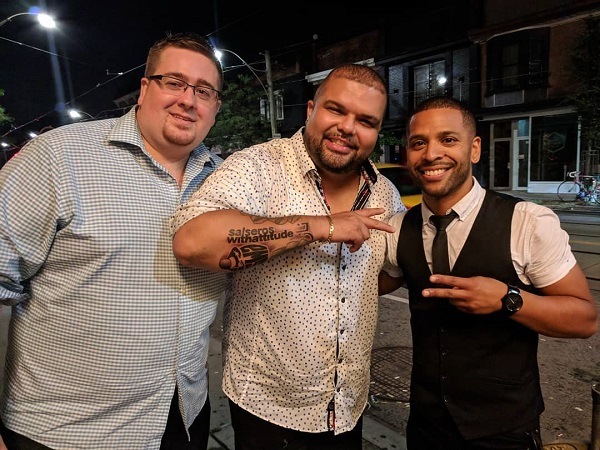
Beginnings of Salseros With Attitude
As for the beginnings of Salseros With Attitude, Alex let us know that a DJ who was a great friend of them, Oscar Betancourt, connected them with the hip-hop group Los Poetas, which offered them to serve as a backing band for some of its live events.
By having to play together with this and other bands, Alex, Jairo and Andres noted that they had much chemistry between them and got along very well musically speaking, so they decided to form their own group to see how it went.
Then, Andres, who had just joined the Zoom meeting, was the one who gave the band the name of ”Salseros With Attitude”. The Uruguayan-born Canadian drummer and multi-percussionist, who inherited Uruguayan music and values from his parents, entered the artistic world with typical and folkloric orchestras during his teenage years, until he discovered that his thing was Latin American tropical music, more specifically salsa.
After traveling to several stages and performing in activities together, they ended up being part of an orchestra and a very strong brotherhood that holds them together.
Why Canada?
When we wanted to know why they chose Canada as the place to establish their orchestra, Andrés laughs and says that he had no choice, since his parents moved there. It was the country where he was born and where he has always lived.
Jairo, for his part, was born in Panama, but he had no choice either because his parents moved to Canada when he was only seven years old. Although he is extremely proud of both nations and always mentions them when asked where he is from, he emphasizes that he was raised in a Latino household with Latino values in which the Spanish language was never lost.
Alex was born in Panama, but also points out that his parents decided to move to Canada and he has been living there ever since.
while the decision to make life in Canada was not taken by them, the three artists keep living there by choice and every day they thank their parents for choosing this destination, otherwise they would not have had the opportunities they have both personally and professionally.
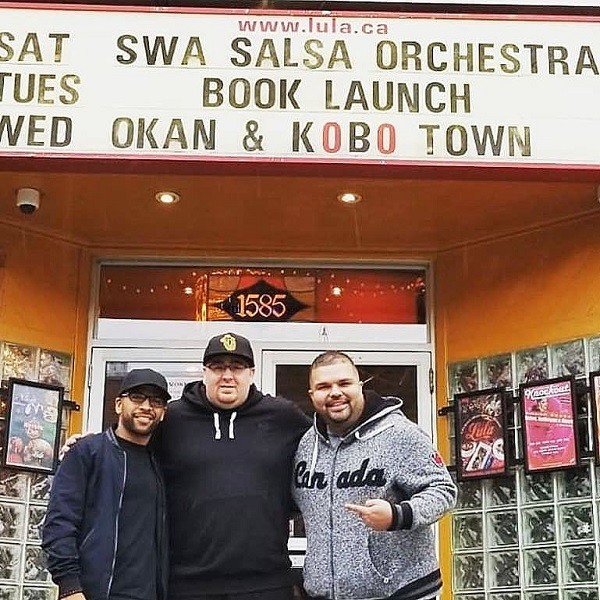
Original music and covers
Most of the time, the music and arrangements come from Alex’s ingenuity, but there is no lack of good ideas and contributions from Jairo and Andrés in order to beautify and improve the work already done. However, there are times when the last two can have a specific idea with which Alex, in his words, ”plants the seed” to grow a beautiful oak tree.
The Panamanian artist highlighted Andres’ role with regard to covers and they two make the necessary arrangements so that their versions are not remotely similar to the original songs.
He also revealed that one of the soon-to-be-released songs was written by the singer of Salseros With Attitude, Venezuelan Albany Caldera. The lyrics are hers and it was Alex who created the musical arrangement.
Event planning and music classes
The planning of events has not been a simple matter, since the members of Salseros With Attitude know that they are in a very competitive environment with many groups and few festivals and places to play. That is why they are always in search of opportunities outside those spaces such as corporate events, weddings and other shows not included in the world of entertainment. That has led them to opt for the production of events focused on these more private activities.
As regards the teaching of music, they have been blessed with the possibility of going to schools to perform for children in a dynamic and interactive way. They also get used to covering children’s songs in salsa and cha cha chá so that the little ones feel connected and identified with what they hear and, therefore, learn in a simpler and more friendly way.
Conclusions
After having listened carefully to each of the interventions, it is evident that these young musicians have a very powerful brotherhood and are in sync with one another.
It is really admirable that they know and feel how special they are compared to other groups of this kind and that trust has led them to the success and popularity they have achieved over the years.
From International Salsa Magazine, we wish them the best and hope that Salseros With Attitude keeps growing to infinity in all possible areas and takes Latin culture to the top.
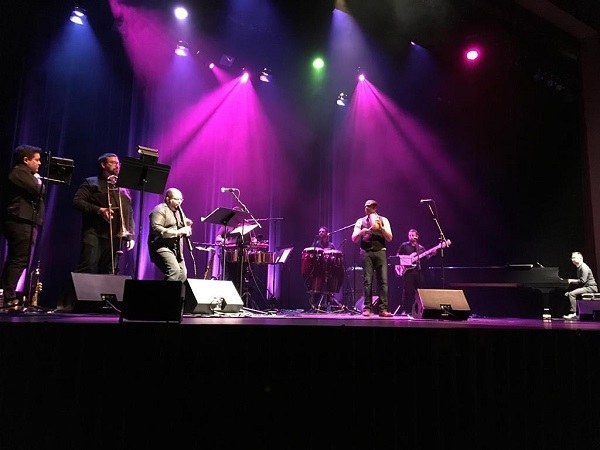
Read also: Founder and owner of Guapacha Productions Gil Tower
